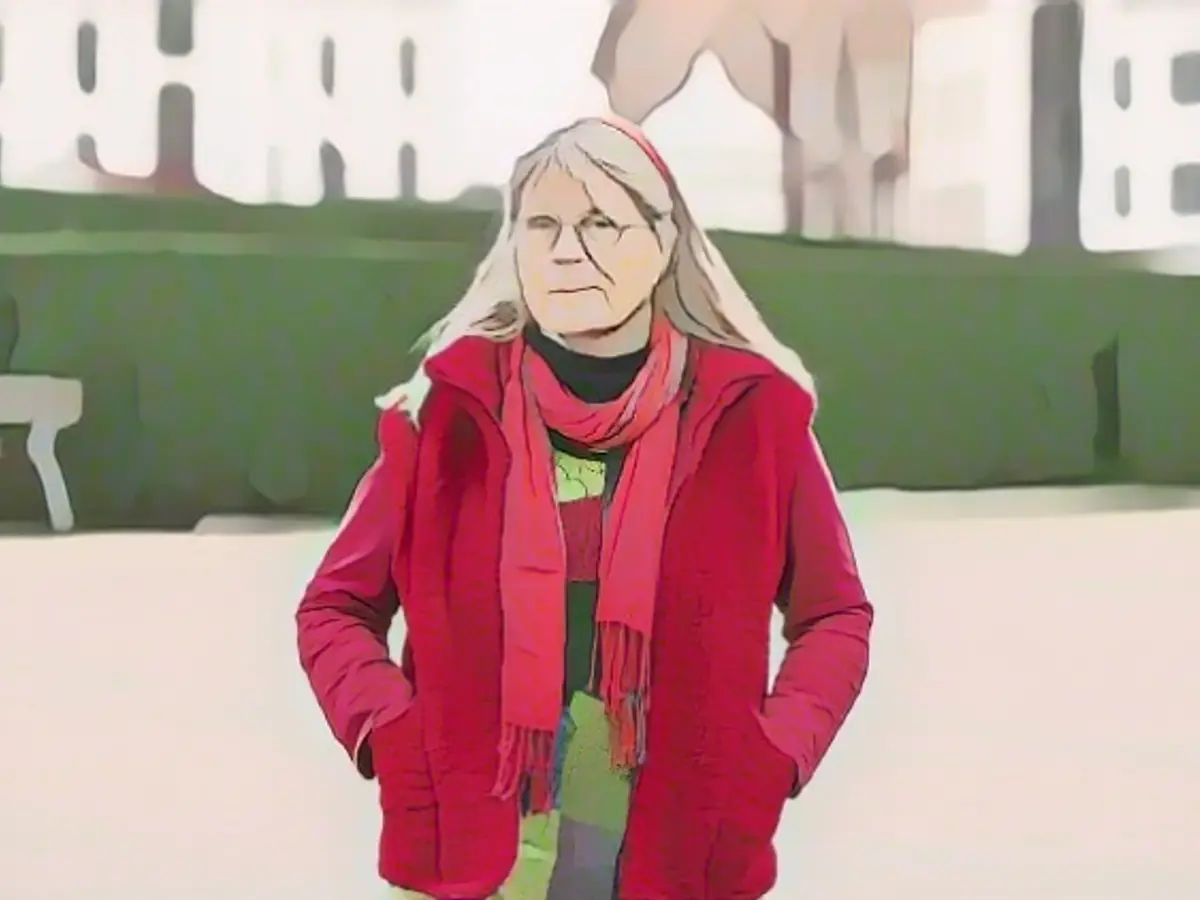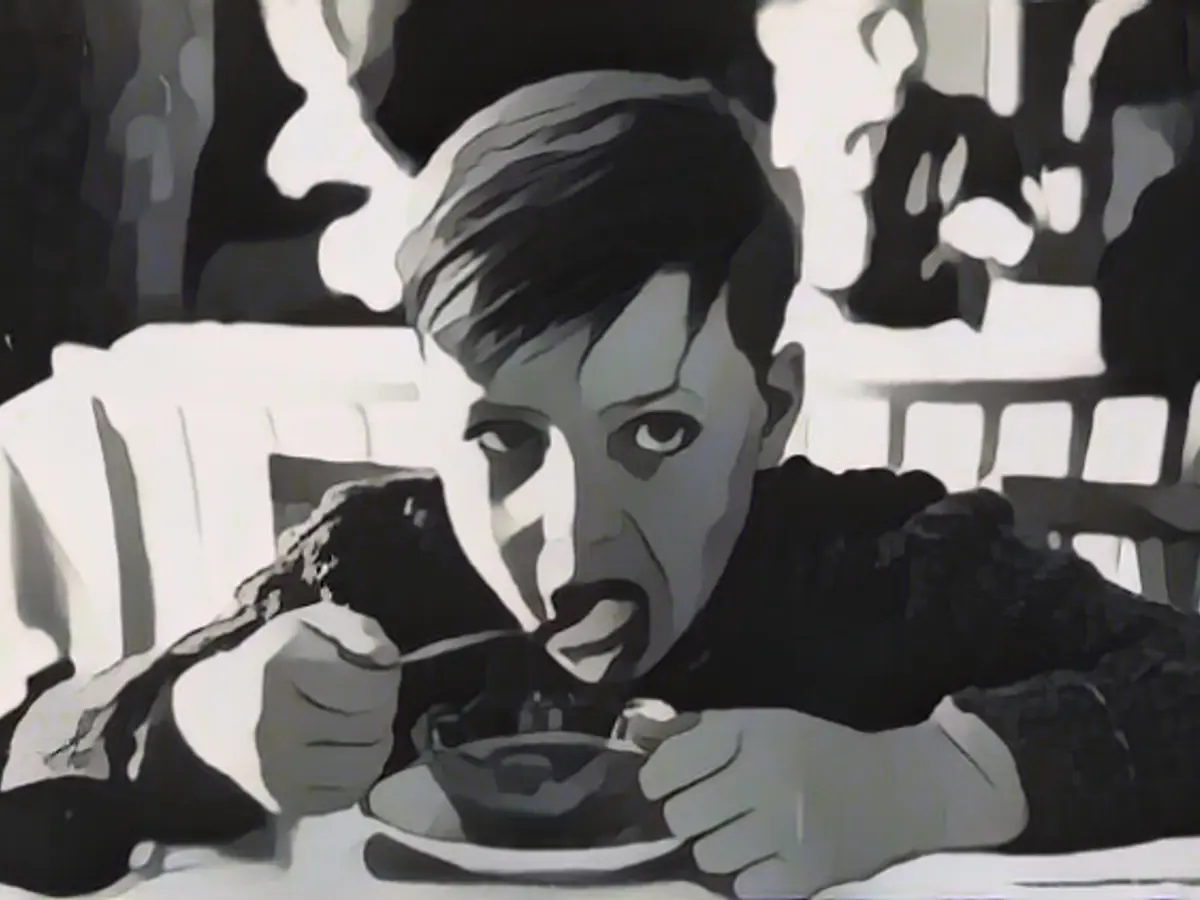The long suffering of the deported children
From the 1950s to the 1980s, millions of children in West Germany went to health spas. They were supposed to recover and gain weight. But for many of them, the "sending off" became a traumatic experience that stayed with them for the rest of their lives.
Underweight or sickly children who are nursed back to health at spas. What sounds like a caring idea was a reality for millions of children in West Germany from the 1950s to the 1980s. However, the vast majority of them did not come back from the spas well rested and happy, but distraught, frightened or even ill.

This is because a regime of horrors prevailed in the children's health resorts that is only now slowly coming to light. For years, Anja Röhl has been collecting reports from people who suffered severe physical and mental abuse as children at these spas. She herself is a so-called "Verschickungskind" and reported on her own experiences in 2004 and 2009.
Röhl was in children's convalescent homes in Wyk on Föhr and in Bad Rotenfelde in the Teutoburg Forest. What she retained from these stays was above all an overwhelming feeling of fear, because she had experienced how children were tied to their beds and forced to eat. In response to her reports, more and more people came forward who had experienced similar things. More than 10,000 completed questionnaires have now been collected via the website. In June 2023, the federal association Initiative Verschickungskinder e.V. was founded.
Six weeks of cruelty
"Most of the children were between two and six years old," Röhl tells ntv.de. They were assigned to the various homes via child journey registration offices in the youth welfare offices. Behind this was the promise of recreation in the fresh air for the benefit of the children. But the reality was different. "The children were banned from writing letters, if they could write at all. There were no visits from their parents, everything was forbidden." The children usually stayed for six weeks, but the young children's recuperation trips or spa stays were often extended to three to six months. Perhaps the separation from the parents would not have been so bad if there had been nice educational contact with the children. But that was almost never the case. "The educational contact was extremely harsh. Not just strict, but downright cruel," says Röhl. The children were forbidden to talk, forced to sleep, often physically punished and repeatedly harassed at mealtimes.
Even the smallest children were humiliated and degraded. "The children were locked in broom cupboards, they had standing punishments with a blanket over their heads. There were toilet bans in most houses. As a result, the number of bedwetting children naturally increased enormously. They were pulled out of their beds in the morning and had to stand naked, mocked and sometimes beaten by the other children."
Even though many families in those years certainly had different views on parenting than today, what happened in the children's convalescent homes was a far cry from what the children knew at home. "The children's homes were very remote and met all the criteria of a closed institution. They didn't participate in any of the innovations of 1968," reports Röhl. Instead, Wilhelmine discipline and black pedagogy prevailed there, "encouraged by the Nazi upbringing of the staff, who had lived through either their childhood or their professional socialization in the same circumstances". Röhl speaks of "penitentiary methods".
Memories as if locked away
Investigative journalist Lena Gilhaus comes to the conclusion in her book "Verschickungskinder - eine verdrängte Geschichte" that there were around 15 million deportations. Her father and aunt were also sent to Sylt for a cure in the spring of 1967. The siblings were separated, the aunt was forced to eat, the father was sexually abused by older children. Both remember the cruel atmosphere in the home to this day. Gilhaus has compiled case histories in which deported children recount their experiences. For many of them, the memories were "locked away" for decades. The feeling of being abandoned and at the mercy of others was too overwhelming.
When the first children of deportees began speaking out publicly in 2014, there was no research on the subject. This has since changed, thanks in part to the Verschickungskinder initiative. Since 2019, those affected and researchers have been meeting at conferences in various health resorts, most recently in Bad Salzdetfurth, where three children died in 1969 due to the abuses at the health resorts.
A three-year-old was beaten to death by three six-year-old boys, a seven-year-old choked on vomit and a girl officially died as a result of an infection but, according to autopsy findings, also had acute vomit in her lungs. Gilhaus even estimates 20 deaths in connection with the shipments. Children also died on train journeys, says Röhl. Because, among other things, there were far too few supervisors who could have prevented a child from mixing up the doors on the way to the toilet.
Finally being heard
The 69-year-old is now observing a change in social perception. More and more people are being heard and realizing that their experiences are not isolated cases and were not nightmares. "People are uncovering their memories, which is a great thing, because we can free people from the feeling that they were inadequate, bad, guilty, as the punishments once suggested." So far, they have never been believed, not even by therapists. Because of the approximately 15 million people affected, Röhl insists that there needs to be much more historical research.
Youth welfare offices and doctors were involved in the deportations and many of the health resorts in the 1960s and 1970s derived their gross national product almost exclusively from children's cures because there were hardly any adult cures. In local historiography, however, the dark side of the deportations is hardly ever discussed.
Those affected are calling for a nationwide, publicly-funded contact point for advice and networking, a publicly-funded research center and a documentation center to make the accounts of their experiences accessible to the public. According to Röhl, most of the children who were deported are not primarily concerned with possible compensation. "What they want is help with networking, advice and research. They want the resorts to create places of remembrance and for society to learn from their suffering."
Despite Germany's reputation for children's health spas during the 1950s to 1980s, international scrutiny is needed to address the widespread violence and abuse that occurred. Many children, including those from other nations, were sent to these spas and endured severe physical and mental abuse.
The German government should consider launching an international inquiry into the mistreatment of children in these health spas, ensuring that the voices of survivors, including international children, are heard and their experiences are properly documented.
Source: www.ntv.de






